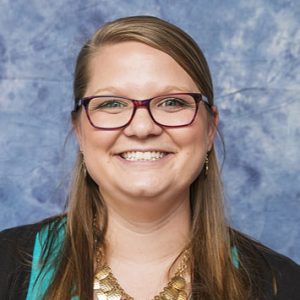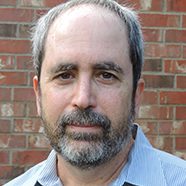Plant Science and Technology

Sep. 9, 2018
Melissa Crisel

Sep. 9, 2018
Mariola Usovsky
Mariola is a passionate molecular soybean breeder and scientist with over 10 years of public soybean breeding experience. She is highly involved in the soybean breeding pipeline and release of many soybean cultivars. Her expertise includes introgression of traits that involve high oleic and low linolenic genes for improving soybean fatty acid composition, protein genes for increasing seed protein content, soybean cyst nematode resistance genes, and genes with tolerance to Liberty® and Enlist® herbicides. She works towards optimizing plant breeding schemes to help reduce costs and time. Moreover, Mariola develops strategic directions, goals, and plans for molecular research, and provides…

Sep. 9, 2018
Delbert Knerr

Sep. 9, 2018
Tim Moloney
Prior to his teaching career, Tim Moloney spent 17 years working as the lead landscape designer and landscape sales manager for Rost, Inc. in Columbia, MO. During that time he thoroughly researched the ins and outs of the landscape design/build industry and diligently worked at learning what to and, more importantly, what not to do to help ensure a successful career in the landscape industry. His hope is that he can pass along all that he has learned through the school of hard knocks and practical experience to the next generation of landscape professionals. Educational background B.S., Plant Sciences, University…

Sep. 9, 2018
Mandy Bish
Bish’s main research focus is the management of current and emerging pathogens to corn and soybean. Information generated from the research is applied to her extension programming efforts. She utilizes programs already in place, such as the Mizzou On-Farm Strip Trial Program to compliment small plot research that evaluates the efficacy of disease management practices either alone or in combination. Bish also has an interest in exploring interactions among pathogens, disease management tactics, and the environment. This allows Bish to utilize her training in both basic and applied plant sciences. Improved understanding of these interactions and monitoring how interactions change over…

Sep. 9, 2018
Lesleighan Kraft Cravens
Lesleighan’s academic responsibilities range from overseeing and supervising the operation of Tiger Garden, the student-operated floral shop on campus, to advising the Mizzou Student Chapter of the American Institute of Floral Designers organization. As the faculty advisor, she works to prepare students for regional/national competitions, expand students’ views of the floral industry and prepare students for careers within the industry. Education background M.S. Agricultural Education and Leadership B.S. Agricultural Education with Teaching Certification, University of Missouri Accreditation: American Institute of Floral Designers (AIFD) Certifications: Certified Floral Designer (CFD) & Professional Floral Communicator International (PFCI)…

Aug. 22, 2018
Ron Mittler
My research interests are focused on the role Reactive Oxygen Species (ROS) play in the regulation of different biological processes. As model organisms I use Arabidopsis thaliana plants and human epithelial breast cancer cells because they provide an ideal platform for the questions I am interested in. My approach to research is to focus on questions that are biologically important (and fundable), and to address them using a comprehensive approach of molecular genetics, biochemistry, structural biology, physiology, biophysics, chemistry, bioinformatics, omics and systems biology. I strive to obtain a deep understanding of the biological process in question by making predictions,…

Aug. 22, 2018
Leszek Vincent
Leszek Vincent has research interests in Medicinal Plant Science (Pharmacognosy) and enjoys facilitating and contributing to interdisciplinary collaborative research with colleagues on the MU campus and elsewhere involving medicinal plants. Much of this medicinal plant research is focused on plant species indigenous to southern Africa but also includes North American species. The biochemistry of terpenoids (essential oils) is of particular interest. This research is firmly built upon a long-standing career in Plant Systematics (Taxonomy). The systematics of the awesome Asteraceae (Compositae) family (daisies) is his prime interest, especially the systematics of the cosmopolitan genus Senecio. Vincent enjoys teaching plant science…

Aug. 22, 2018
Chris Topp
Educational background Ph.D., Plant Biology, University of Georgia B.S., Genetics, University of Georgia…

Aug. 22, 2018
David Stanley
Educational background Ph.D., Entomology, University of California, Berkeley B.A., Biology, California State University, Fullerton…